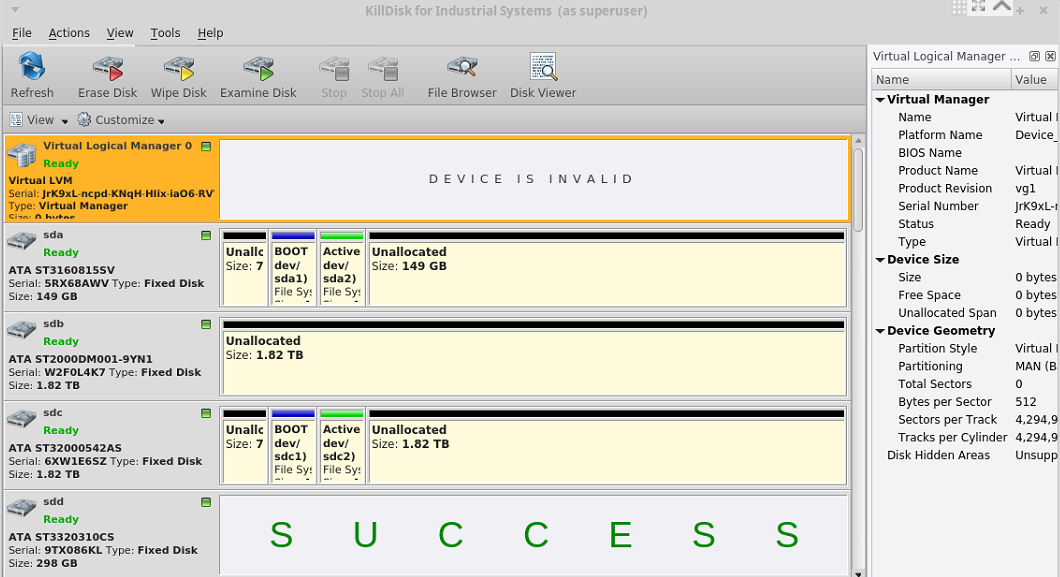The purpose of Disk Bay Layouts is to match KillDisk's graphical representation of your disk configuration to your physical hardware configuration, making it easy to manage your disks for Erasure, Examination, Cloning and more. To illustrate this, let's look at an example, using the hardware below:
Figure: Example of a generic disk array

In the above example, we have a generic disk array consisting of 16 disks, arranged in a 4x4 grid. The machine using these disks would see the disks similarly to KillDisk's Local Devices view, as depicted in the Figure below:
Figure: Local Devices view

Now imagine inserting a Hard Disk Drive into the bottom-leftmost bay of the disk array and wanting to perform an operation on it. Even finding the device in a list of 15 other disks would be tedious and not very intuitive. This is where creating a Disk Bay Layout is extremely useful. By creating a 4x4 Disk Bay Layout, we can map the physical ports to their corresponding Bay in KillDisk and visually see our disk array like this:
Figure: Disk Bays view

Assuming that the bays were mapped correctly, finding the correct disk to manipulate now much easier in the Disk Bays view than it would have been in a list view. You can now select the bottom-leftmost disk in the Disk Bays view and perform any necessary actions on it.